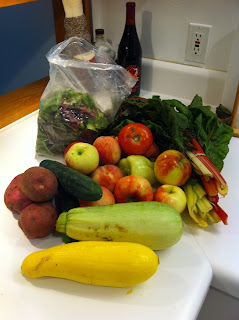My pace fell into patterned in rhythm with the first few
lines: “You can’t be what you were/so you better start being just what you
are…” (MacKaye, 1989). I pondered the wisdom of these words, thinking about how
learning changes us, and as we progress through life stages and role, we can’t
go back. I thought about my own journey from English major to pre-service
teacher to classroom teacher to doctoral student to teacher educator—I remember
being all the places I have been, but it is essential that I embrace who and
what I am now in order to do my best work.
As I continued to listen, heart pounding and legs moving,
I remembered a time in a professional development session I was giving, in
which a veteran teacher told me “I have been teaching this way for thirty
years, and I’m not going to change now. You can’t change me. “ In my
experience, this kind of negativity is common among discouraged teachers who
experience the continual flood of new techniques and technologies that manifest
in state or district mandated trends, which then go quickly by the wayside. The
insecurity seeded by unsupported continual change often makes for negative
talk, which leads to negative thinking, which leads to a sense of “stuckness,”
which is clearly what the veteran teacher in my PD session was feeling. As
MacKaye expresses, “You
can't be what you were/No movement, no movement, no movement/In a bad mouth/It
betrays a bad mind” (1989).
This negative thinking—“no movement”—can affect our growth
as teachers, as writers, and as learners.
We can’t be what we were—we must
move—life must move us, yet finding flow in flux is often terrifyingly
difficult. 21st century students are comfortable with continual
technological change and a constant flood of information—and, as teachers, we
must be too. This means, sometimes, being positive even when we feel afraid,
going forward even when we feel like standing still. We have to “be what we are”
as we change and grow: learning changes us.
A goal, then, for myself as a teacher and for the
pre-service teachers who are learning with me is this: to move from a place of being
stuck and (unproductively) still to a place of hope, positivity, and embracing movement,
where practice and philosophy align, so that I am “living the life/that [I’m]
talking about…” (MacKaye, 1989).
Reference
MacKaye, I.
(1989). Bad Mouth [Recorded by Fugazi]. On 13 Songs [CD]. Washington, DC:
Dischord.

